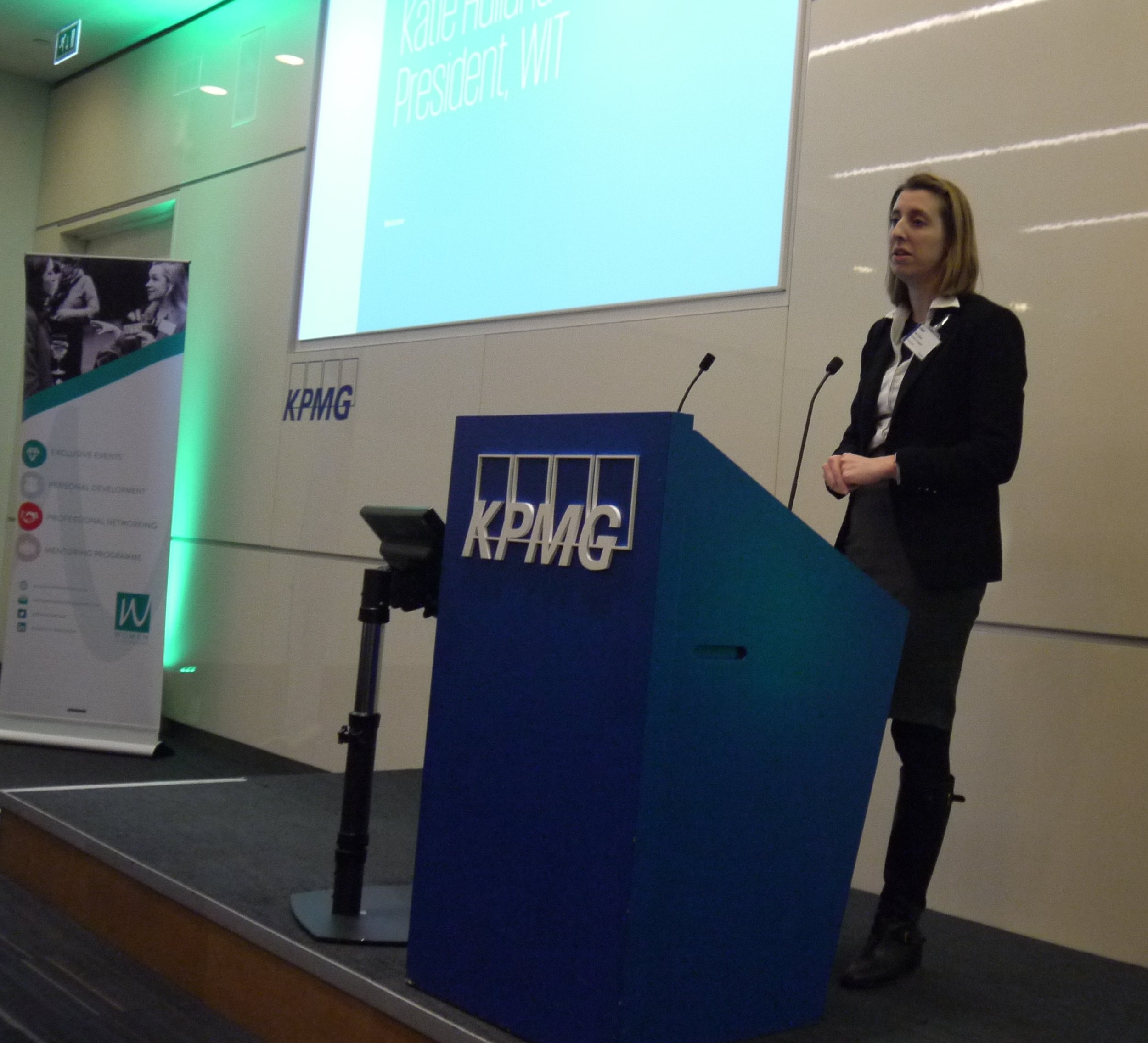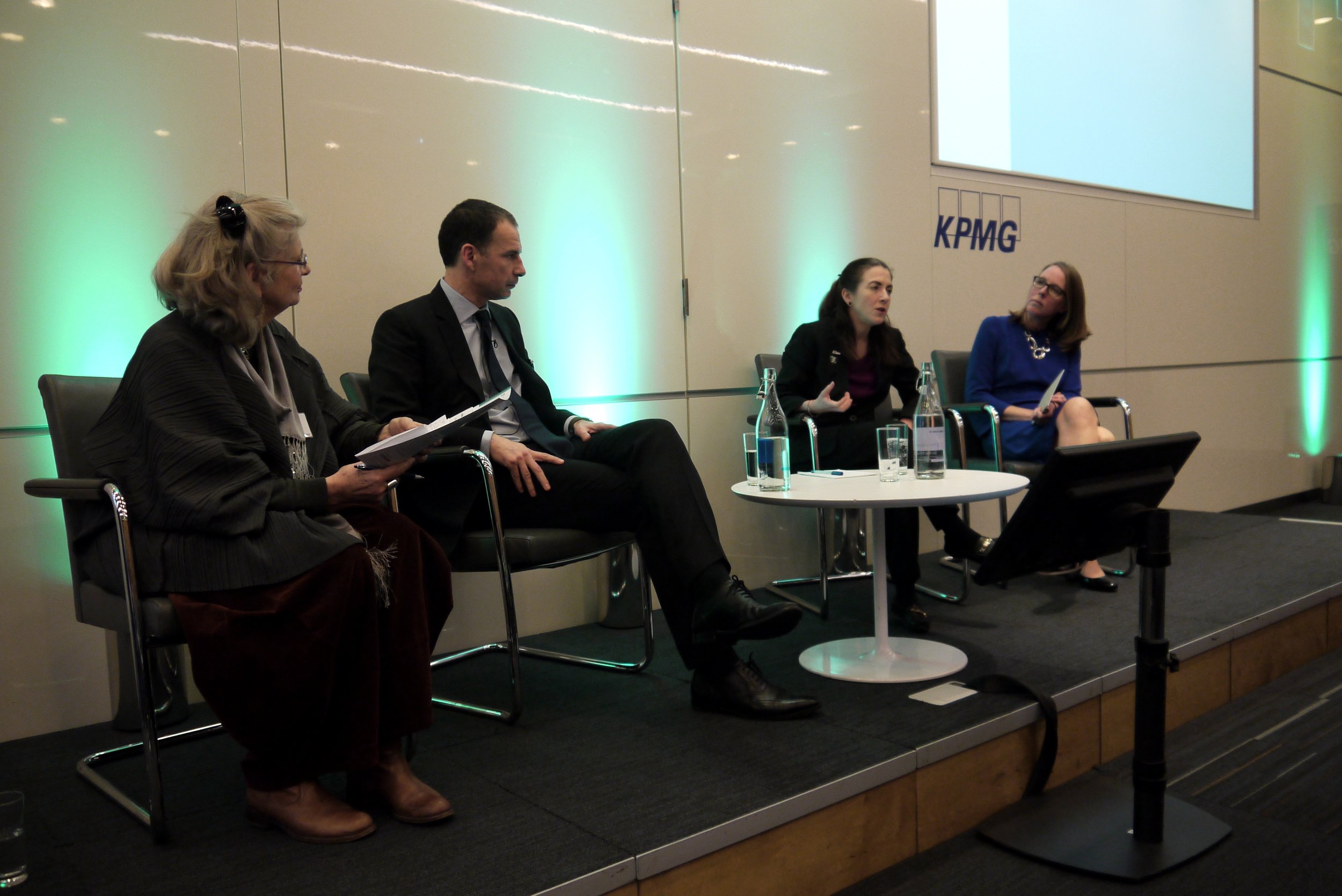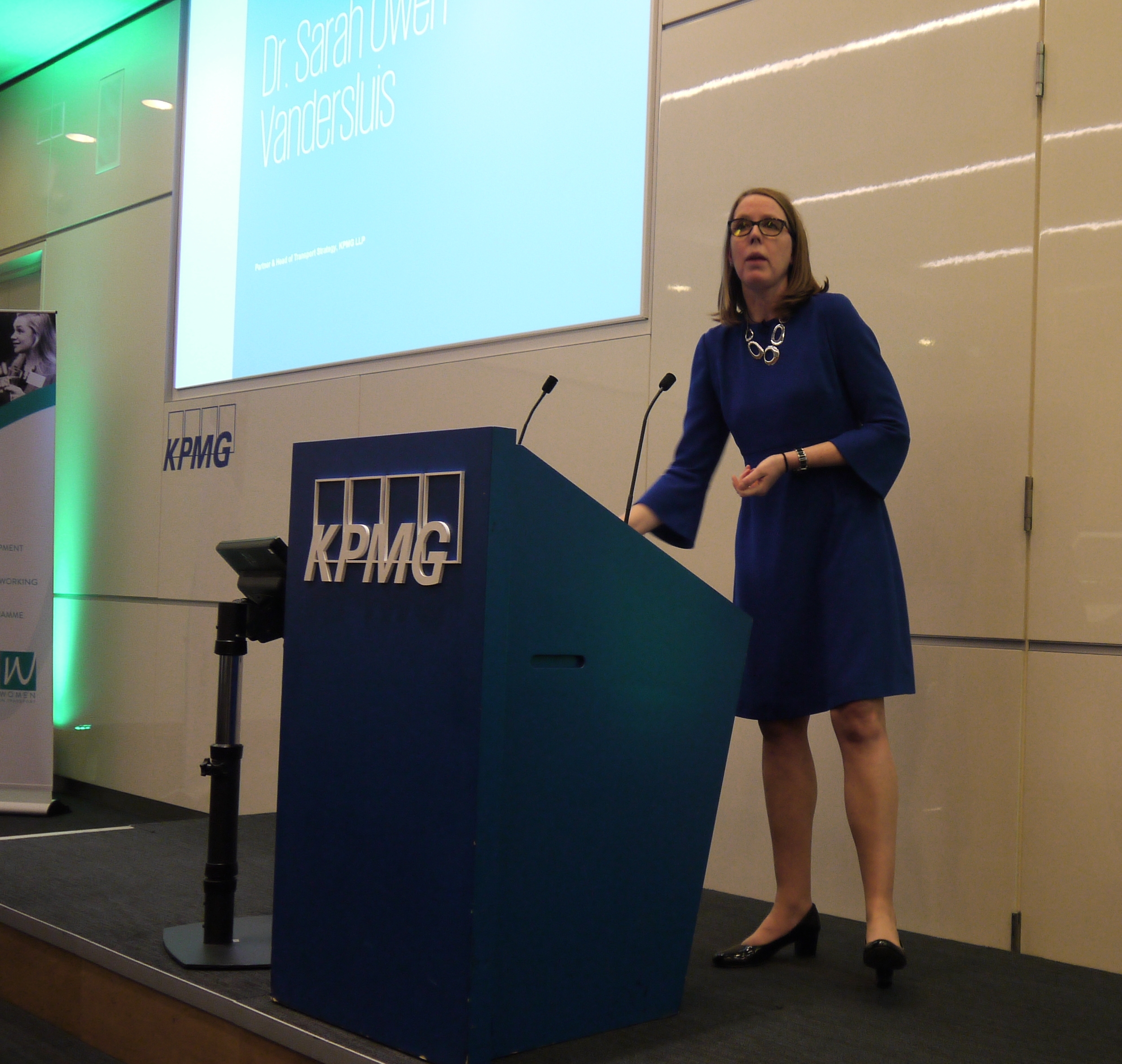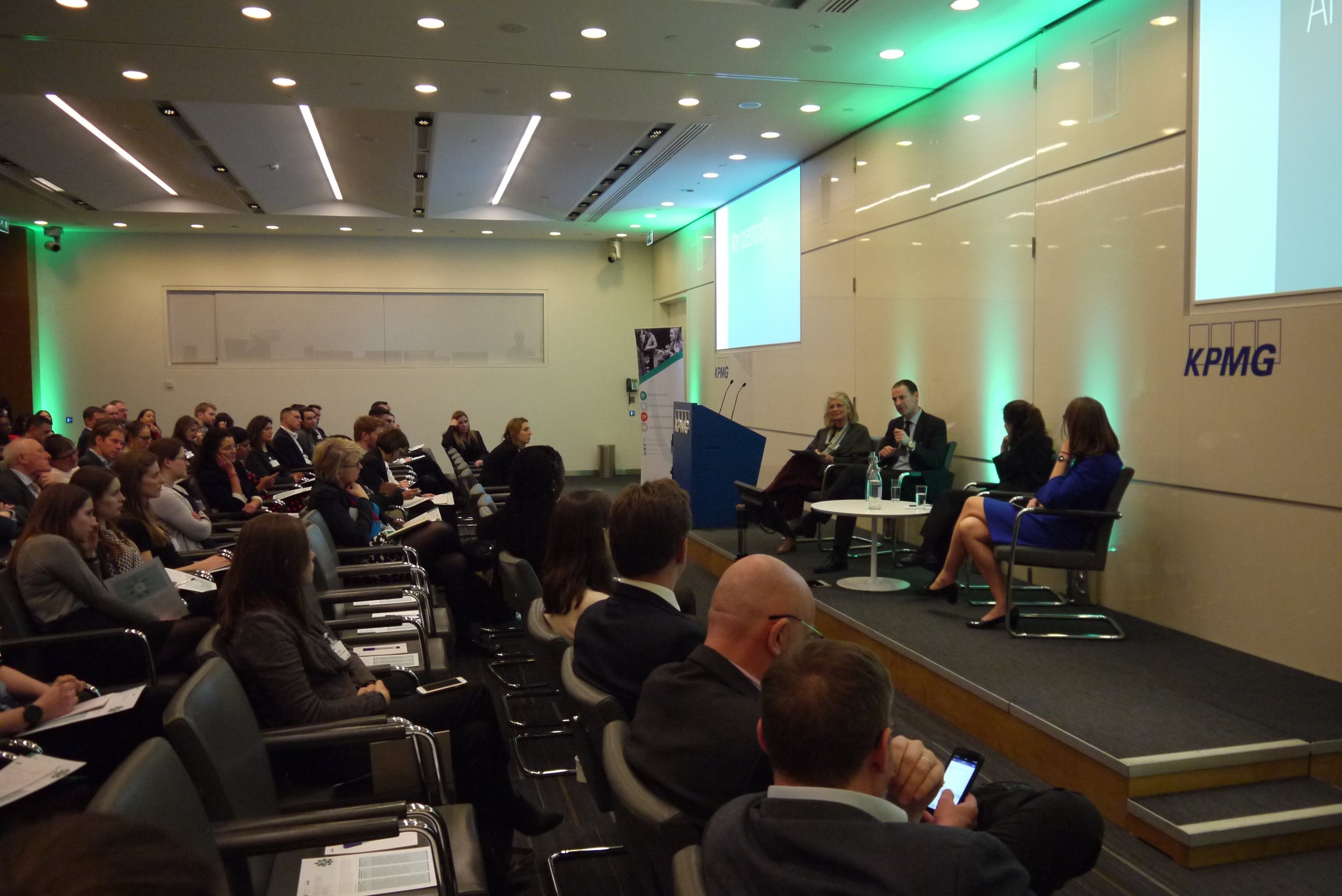by Mailys Pineau, a member of the Women in Transport Events Team and Senior Consultant at Momentum Transport Planning
Over 100 guests from across the transport industry gathered on February 7th at KPMG in Canary Wharf for our annual Winter Reception on the thought provoking theme of data and decision making. The discussion was led by a panel of experts in the field sharing their views on innovative uses of data to help make better business decisions, a challenge faced by many organisations in the transport sector.
Our president, Katie Hulland, shared some of the tremendous achievements of Women in Transport since our re-brand in September 2017; a significant increase in membership, 10,000 followers on social media, the launch of our mentoring programme and a continued exciting programme of events. Members have recently had the opportunity to experience a tube train simulator and the coming year includes the chance to drive a double-decker bus plus a host of personal development workshops and networking events. Katie welcomed Mark Wild, Managing Director of Transport for London (TfL), who we are delighted to announce has become a patron for Women in Transport.
Camilla Ween, our past president, introduced the evening’s three speakers: Sarah Owen-Vandersluis, Partner and Head of Transport Strategy at KPMG; Lauren Sager Weinstein, Chief Data Officer at TfL; and Simon Ancliffe, Founder and Chairman of Movement Strategies.
Sarah Owen-Vandersluis opened the speakers’ session by saying there couldn’t be a better time to be talking about data and decision making. On a daily basis, she interacts with UK local authorities to discuss the disruption caused by the rise of connected and autonomous vehicles and how this is going to radically transform the way transport services are run in the UK. KPMG’s research estimates over a third of vehicles will be capable of being autonomous and connected by 2030 with potential value for the UK economy of between £50 and £100 billion, encompassing externalities in telecoms, digital revenue, the service industry and city infrastructure efficiencies.
This rise, however, poses a number of challenges, not least in the fields of quality, regulations, standards, security and privacy. Most crucially, it creates system level issues with the wider responsibilities for public authorities to increase their organisational agility in a rapidly evolving scene and set boundaries for the commercial exploitation of data.
Lauren Sager-Weinstein went on to explain that TfL is extremely data rich but the exploitation of this data needs to align with TfL’s purpose: implementing the Mayor’s strategic priorities, providing a good public transport experience and keeping London growing and planning for new jobs and homes. Recent achievements of her team include providing live updates to customers and improving real time operations. For Lauren, the key to successful data analysis is to ask the right questions and be concerned about how useful the analysis is going to be. If it does not improve the customer’s experience, the management of the infrastructure network and the safety and security of TfL’s staff, then interesting data is not enough.
Simon Ancliffe offered a complementary perspective on the topic from the private sector. Movement Strategies started using mobile phone data during the 2012 Olympics to understand how people were moving in the city, respond to crowd surges and improve the performance of the transport system. He reflected on the quick pace of progress made since then and highlighted that algorithms, e.g. machine-learning, complement rather than replace experts: the data quality must ‘feel right’ and be communicated with the appropriate tools so that the appropriate decisions can be made.
A fascinated audience asked questions about the role of transport planners as translators of data insights, requiring a level of responsibility in the field, and data literacy on the side of decision makers. Ethics was also a key question: how do we make sure that we are mindful of the tensions and biases inherent to everyone? It was agreed that this is a question that we struggle with as a society. It’s certainly a challenge for both the public and private sector and reliant on the understanding of individuals. The incoming General Data Protection Regulation (GDPR) requirements will enforce stronger compliance and represent its own challenges.
The evening was rounded off with networking and further discussion over drinks and canapés.
Here are a few comments from our guests:
“Good atmosphere, very welcoming with a great range of people from different companies.
“The panel was so interesting and inspiring that it started absolutely fascinating 'networking' conversations afterwards”.
“Fantastic facilities - warm welcome - people willing to chat and network in an encouraging environment”
“A good opportunity to learn more and get some insights from the experts “
“It was interesting that women outnumbered men (which is very rare for a business/networking event) but that men also attended which implied that we are not trying to shut men out but want to be on an equal footing.”
“Interesting topic and a great range of engaging speakers.”
Our thanks to the panellists for engaging in a captivating discussion on this key topic and to KPMG who generously hosted the event in Canary Wharf.
Please follow us @transportwm or on Linkedin Women in Transport for the latest events, news and updates.




